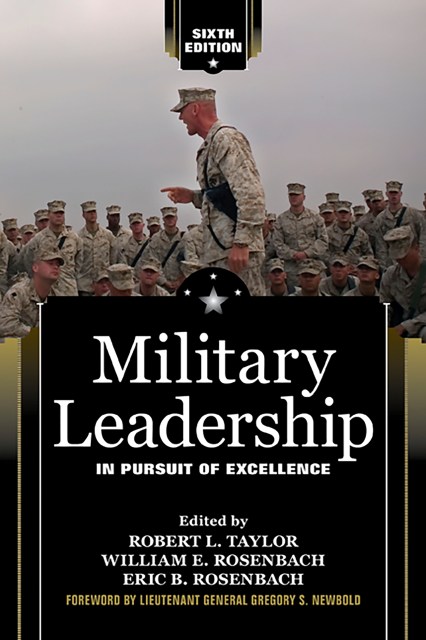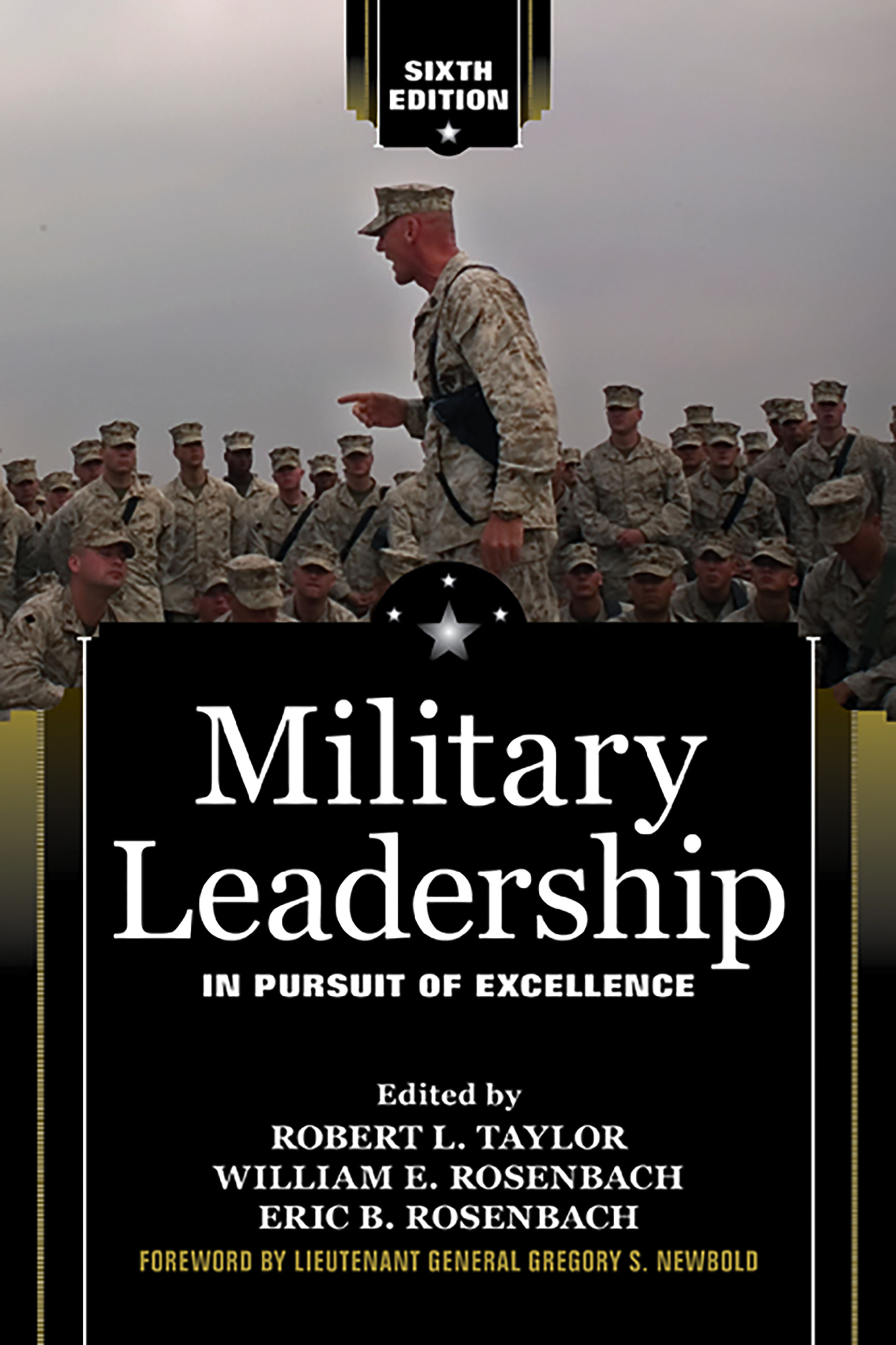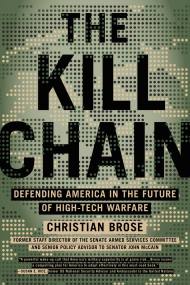Promotion
Use code MOM24 for 20% off site wide + free shipping over $45
Military Leadership
In Pursuit of Excellence
Contributors
Text by Robert L. Taylor
Text by William E. Rosenbach
Text by Eric B. Rosenbach
Formats and Prices
Price
$45.00Format
Format:
- Trade Paperback $45.00
- ebook $25.99
This item is a preorder. Your payment method will be charged immediately, and the product is expected to ship on or around December 30, 2008. This date is subject to change due to shipping delays beyond our control.
Also available from:
The sixth edition of this classic text continues its popular interdisciplinary approach to the topic of leadership by examining fundamental elements of military leadership: the “process” of leadership, the dynamic personal interactions between leader and followers, and the individual and organizational values that foster effective military leadership. Military Leadership provides a thoroughly reconsidered and greatly expanded mix of classic and contemporary articles as well as original essays, with authors representing all of the services. Incisive introductory essays to each section highlight themes and connections. Eric B. Rosenbach joins the editorial team for this edition, helping infuse the text with fresh perspectives. The essays of the sixth edition confront the kudos and criticisms that surround military leadership today, offer international viewpoints, and relate military leadership to contemporary leadership theory and approaches.
Genre:
- On Sale
- Dec 30, 2008
- Page Count
- 352 pages
- Publisher
- Avalon Publishing
- ISBN-13
- 9780813344393
Newsletter Signup
By clicking ‘Sign Up,’ I acknowledge that I have read and agree to Hachette Book Group’s Privacy Policy and Terms of Use






